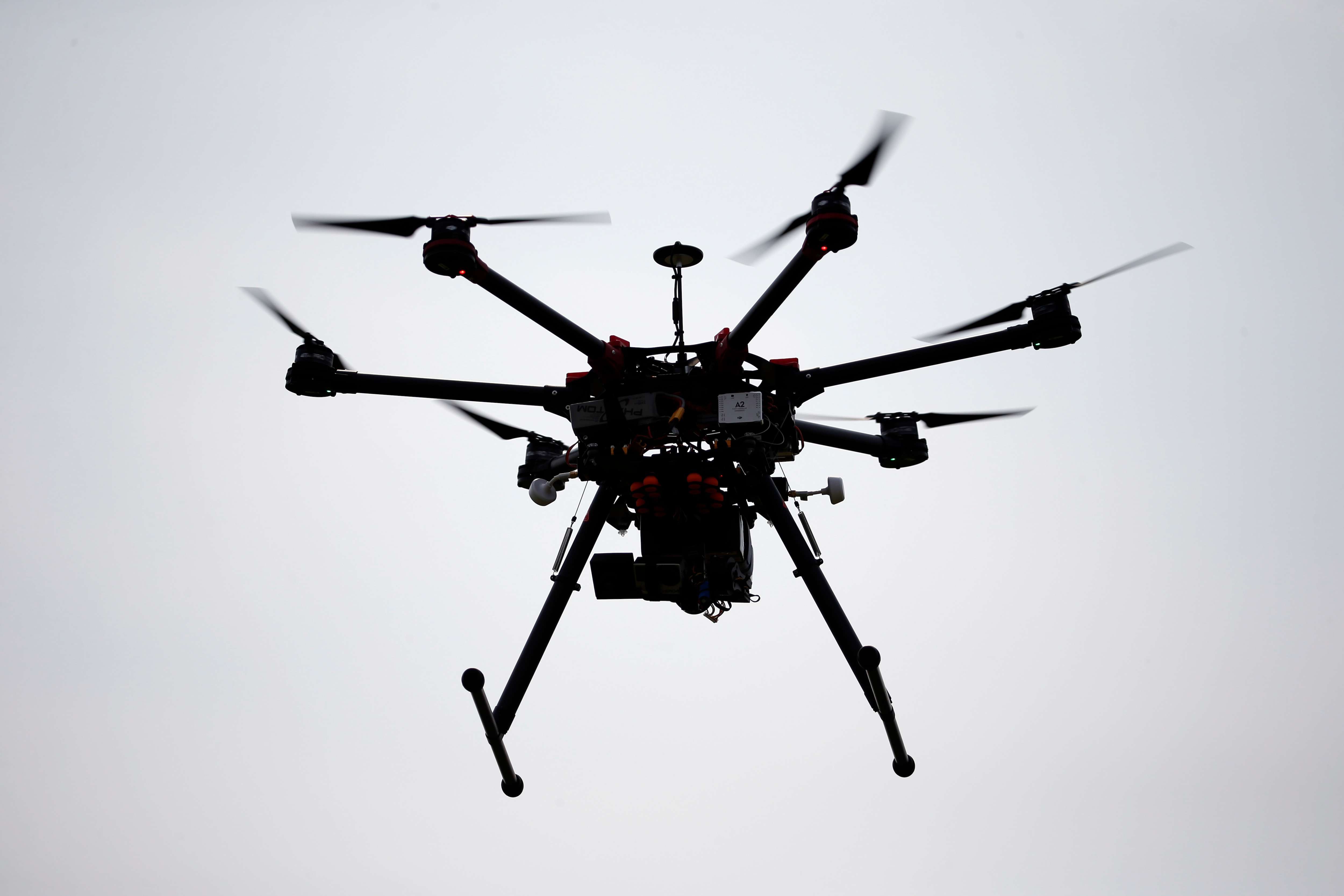The Volokh Conspiracy
Mostly law professors | Sometimes contrarian | Often libertarian | Always independent
Man vs. drone, vs. the law

An interesting story, reported by the San Diego Union-Tribune (Kristina Davis) (see also the story by NBC 7 San Diego's Greg Bledsoe):
1. Augustine Lehecka and his friends are at the beach.
2. A drone flies over them; according to Lehecka, the drone "was flying dangerously low," with "its mounted camera swiveling back and forth apparently aimed at the group. He said he motioned for the drone to leave them alone, but it didn't appear to work."
3. Lehecka then threw his T-shirt at the drone. The T-shirt got caught in the drone's propeller, which caused the drone to fall, and apparently caused $750 damage to the drone.
4. Lehecka was then arrested and charged with felony vandalism, and had to stay in jail overnight, though charges have now been dropped.
5. The pilot says the drone was flying "up high" above the ground, according to the NBC7 story; Lehecka says it can't have been more than about 6 feet above him. It seems to me that if Lehecka downed it with his T-shirt, the drone can't have been very high up, though I expect the distance could have been somewhat more than 6 feet.
Here's my question: Say that instead of the camera being (say) 6 to 12 feet above Lehecka, it was 6 to 12 feet to the side of someone (call him Joe Schmoe), being carried by someone standing on the beach. It could have been a normal camera, or a cell phone camera. The person - a paparazzi (paparazzo), a freelance news photographer, or anyone else - was recording video without Schmoe's permission.
That recording would likely not have been a crime or tort against Schmoe: not trespassing, since the beach is public property; not actionable "intrusion upon seclusion," since it wasn't photographing onto Schmoe's property, or recording any particularly intimate activity; not criminal stalking, since it didn't involve following, or a "knowing and willful course of conduct directed at a specific person that seriously alarms, annoys, torments, or terrorizes the person, and that serves no legitimate purpose."
It would have been rude, and a mild annoyance, but not enough to make it a crime or tort against Schmoe (or his companions). Perhaps the law should be different, and photographing someone in a public place from a close enough distance should generally be illegal. (Certainly many movie stars beset by papparazzi would be happy to change the law this way.) But my sense is that such photography from a nearby place on the ground is generally legal.
But say that to stop this photographer, Schmoe knocked the camera away, in a manner that was likely to damage the camera (and did indeed damage the camera) but wouldn't have injured the photographer.
Would we think Schmoe should be criminally or civilly liable for damaging the photographer's camera in this hypothetical? And is there sufficient reason to think that the result should be different if the camera is 6 to 12 feet above Lehecka, as opposed to 6 to 12 feet to the side of Schmoe? Or is the possible distinction solely based on safety rather than privacy, so that Lehecka's actions were justifiable but only if he was worried that the drone was likely to physically injure him or his friends (and not if his real motivation was solely that he didn't like being photographed)?
For more on this general question, check out "self-defense against overflying drones," a guest-post here last year by Prof. Michael Froomkin & Zak Colangelo. Note also that it's possible that the drone operators activity violated FAA regulations, and it's also possible that intentionally damaging a flying drone is a a federal crime, given that federal criminal law seems to treat drones as "aircraft," given that they are "civil, military, or public contrivance[s] invented, used, or designed to navigate, fly, or travel in the air" (and "civil aircraft" is broadly defined as "an aircraft except a public aircraft").
UPDATE: A comment by reader Liberaltarian:
I personally like some of the quirkier aspects of old English law. I think limiting self-help against drones to thrown T-shirts would make a wonderful common law rule. If you can take it down by throwing a T-shirt at it, then it's too damn close. If not, then tough luck.
Reader PubliusVA responds,
Excellent. We could call it the rule of "quod tangit tunicula."


Show Comments (0)